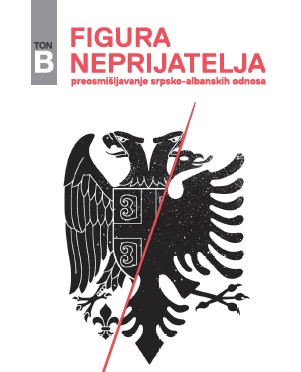Albansko-jugoslovenski odnosi (1945-1948) i njihovo predstavljanje u albanskim udžbenicima za osnovnu i srednju školu
Albanian-Yugoslav Relations (1945-1948) and their Presentation in School History Textbooks
Author(s): Esilda Luku
Subject(s): Diplomatic history, Economic history, Political history, Government/Political systems, International relations/trade, School education, History of Education, State/Government and Education, Nationalism Studies, WW II and following years (1940 - 1949), Inter-Ethnic Relations
Published by: KPZ Beton
Keywords: history textbooks; Albanian-Yugoslav relations; economic and political agreements; ethnocentrism; political narrative;
Summary/Abstract: This paper aims to analyze the economic and political relations between Albania and Yugoslavia after the Second World War and their presentation on primary and secondary school history textbooks, by offering comparative approach of the way Albanian-Yugoslav relations are treated by different schools of historiography. On July 9, 1946 the Treaty of Friendship, Cooperation and Mutual Assistance was signed between the Albanian Prime Minister, Enver Hoxha and the Foreign Minister of Yugoslavia, Stanoje Simic. According to it, the two countries would take the necessary measures to ensure their independence and territorial integrity in case of aggression. They engaged to collaborate for the protection of international peace and security in conformity with the principles of the United Nations and confirmed their friendship by furthering the economic and cultural cooperation. The textbooks authors described the bilateral relationship as a result of the political intentions of Beograd to turn Albania into the seventh republic of Yugoslavia. It was perceived as “the other” in regard to Yugoslav efforts to exploit the weakness of the Albanian state and the risk of domination by a foreign power, claiming to represent it diplomatically. The inclusion of Albania in the Yugoslav Federation was argued in favor of solving the difficult problem of ethnic Albanians in the Yugoslavian state. Tito insisted on the impossibility to recognize the rights of Kosovo to self-determination because of the strengthening of Serb reaction. Due to the Yugoslav pressure, the Albanian leadership under the direction of Enver Hoxha was declared against the unification of Kosovo and Albania. History schoolbooks of both socialist and post-socialist period described the deterioration of the bilateral relations when the Albanian delegation headed by Enver Hoxha and the Soviet government ended an agreement in Moscow for the development of agriculture and industry and Albania received a Soviet loan. The Yugoslav leadership accused the Central Committee of the Albanian Communist Party of the anti-Yugoslav position, putting under pressure the government of Tirana. But it was the information about the Soviet Union Central Committee’s letters, criticizing the Yugoslav leadership for its domestic and foreign policy in deviation from the Marxist principles that helped the Albanian government deal with the pressure of Yugoslav authorities. It adopted unanimously the resolution of the Information Bureau of the Communist Parties, which broke off the Yugoslav-Albanian diplomatic relations in 1948 and shifted to the pro-Soviet orientation of the Albanian government.
Book: FIGURA NEPRIJATELJA: PREOSMIŠLJAVANJE SRPSKO-ALBANSKIH ODNOSA
- Page Range: 197-209
- Page Count: 13
- Publication Year: 2015
- Language: Serbian
- Content File-PDF

